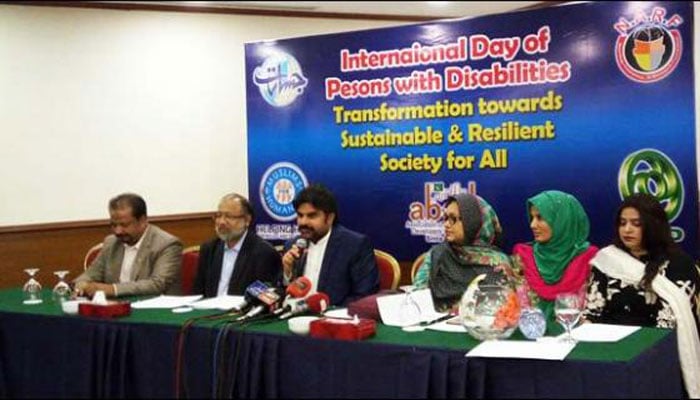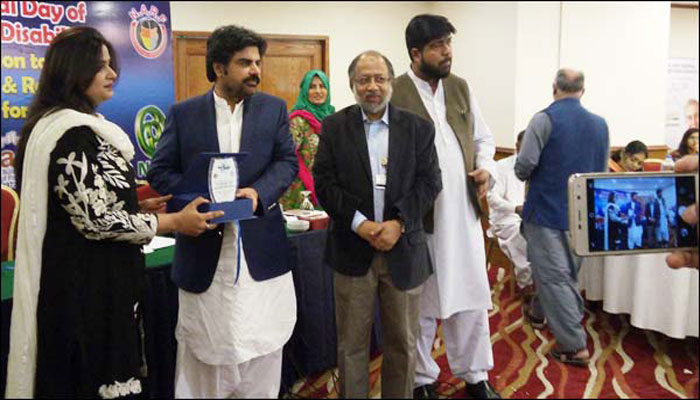Sindh to facilitate disabled persons in various sectors
Sindh Minister for Transport and Information Syed Nasir Hussain Shah says strict action will be taken against the SBCA for not following orders to improve access for disabled people
KARACHI: Sindh Minister for Transport and Information Syed Nasir Hussain Shah on Saturday said special directives have been issued to create employment opportunities for people with disabilities.
Speaking at a seminar held to mark "International Day for Disabled Persons," he said PPP Chairman Bilawal Bhutto is ensuring that opportunities and facilities are made accessible across the government and private sectors, including transport, education, and health.
The minister also warned of strict action against the Sindh Building Control Authority (SBCA) for failing to implement directives aimed at ensuring effective access for those with disability.
A think-tank from Neurology Awareness and Research Foundation (NARF) presented several demands for the welfare of those affected, urging the government, academic institutions, the private sector, and relevant organisations to work collectively to achieve the Sustainable Development Goals (SDGs).
President NARF Prof. Muhammad Wasay said the disability rate in rural areas was 65%, while in urban areas, 34% suffer from disabilities. He added that 58% of those affected are men and 42% women. The proportion of victims was found to be 56% in Punjab and 28% in Sindh.
According to Prof Wasay’s statistics, only 14% are part of the workforce, 10% have access to rehabilitation, and 17% receive social and educational support. He listed the breakdown of disabilities as follows: physical disability (35%), multiple (8%), blind (8%), intellectually challenged (7%), deaf (7%), psychiatric (6%), and others (30%).
He noted that the number of people with disabilities in Pakistan is increasing at an alarming rate of 2.65% annually, with an estimated 5.3 million people suffering from disability, and the primary victims being children.
Appropriate and effective access for those affected
While 43% of Pakistan's population of those with disabilities comprises children, compared to the global figure of 10% (2.18 million), statistics show that 1.4 million school-age children don't have access to education, Prof Wasay lamented.
On that note, the panel demanded full concession in admission fee and relief up to 75% in tuition fee in government educational institutes.
They also called for a Special Computerised National Identity Card issued by NADRA, a 50% concession on ticket charges for people with disability in airlines, railway, public and private transport companies, free treatment in all federal, provincial, district hospitals and dispensaries, and a 60% discount in private hospitals.
The panel further demanded necessary changes in buildings to improve mobility and accessibility for workers with disabilities, as well as wheelchair access in all public transport, which is currently nonexistent.
The seminar urged the enforcement of the special quota in the Federal and Provincial Public Service Commissions.
-
Security forces gun down 30 terrorists in multiple IBOs in KP: ISPR
-
MQM-P calls for new province in Sindh
-
US report validates Pakistan military edge over India: PM
-
Banned TTP poses serious threat to Pakistan security: UNSC panel
-
CM Afridi clarifies remarks on by-poll after ECP requests army deployment
-
Dubai sees 3.2m Pakistani passengers in 2025 as airport sets new milestone
-
Security forces kill 23 Indian proxy terrorists in KP's Kurram
-
Pakistan to construct island to boost oil exploration: report













